College of Human Sciences
Telling our stories through art
The College of Human Sciences recently hosted its Research and Innovation Week flagship event, discussing the telling of African stories through art, as well as neoliberal happiness and feminism. The two panel discussion spoke directly to the agenda of the College which focuses its research agenda on Africanisation and decolonisation.
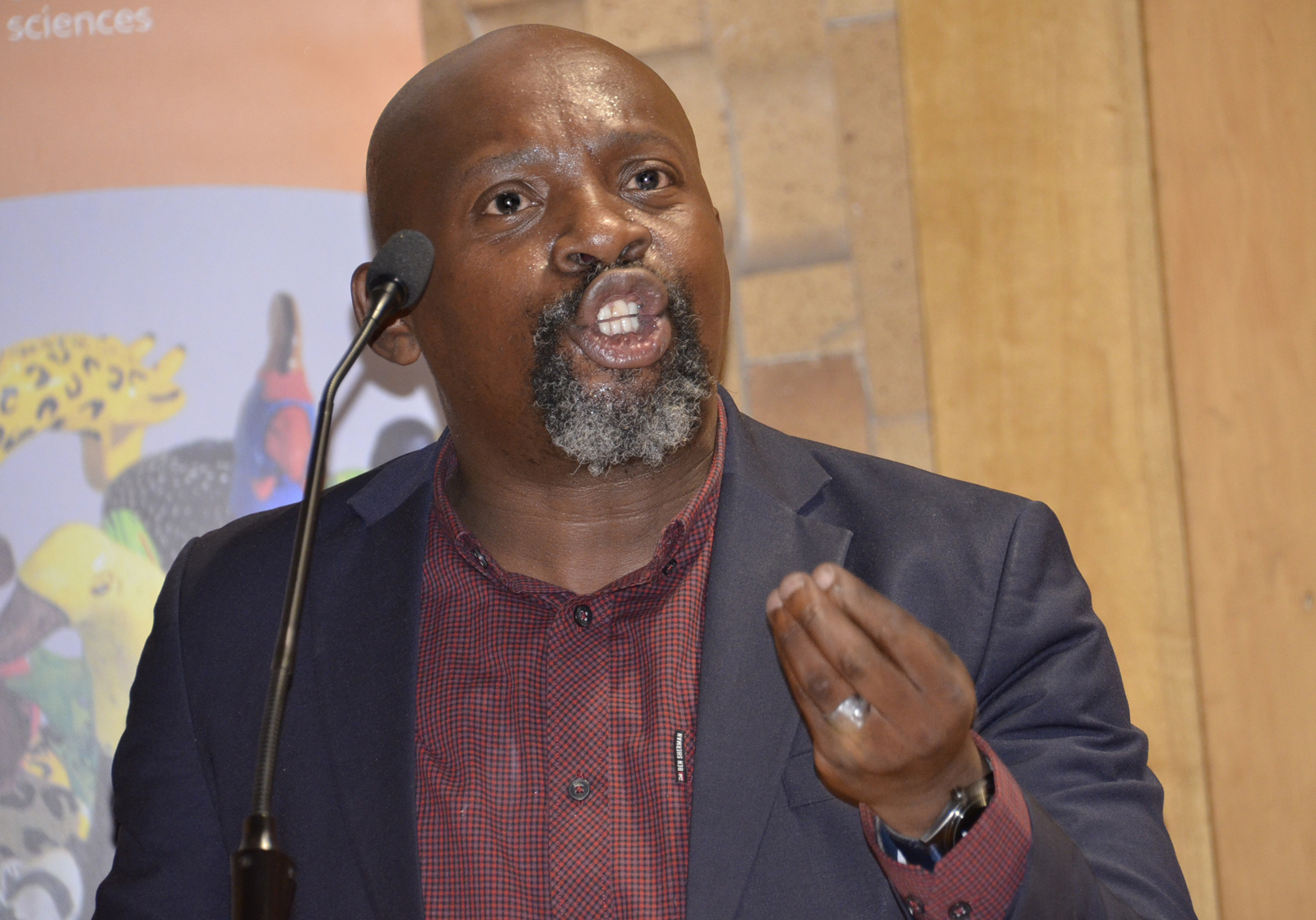
James Ngcobo (Artistic Director: Market Theatre Foundation)
Opening the event, the College’s Dean, Professor Andrew Phillips, said even as Unisa celebrates 145 years of shaping futures in the service of humanity, there were many scholars who seem hesitant and are resistant to explore decoloniality and Africanisation as relevant areas of research that can inform our curriculum. He said the CHS is the most prolific College at the University with regards to research outputs, but questioned why these research outputs do not impact the daily plight of our citizens. “We need to disrupt the notion of what counts as knowledge … We need to be true to who we are as Africans.”
Echoing his sentiments was Professor Puleng Segalo, head of Research and Graduate Studies in the College. She said it was important to look at how art can sustain Africa’s tomorrows, adding that “arts in its multiple manifestations, calls for a decolonised education”.
Speakers for session one, which focused on telling our stories through art, included James Ngcobo (Artistic Director: Market Theatre Foundation); Malebo Sephodi (Activist and author, University of Witwatersrand); Bongani Mkhonza (Curator: Unisa Art Gallery); and Dr Same Mdluli (Gallery manager: Standard Bank Gallery).
Ngcobo spoke on the importance of bringing change into the arts and bringing a linkage between the art industry locally and in the African continent. “We need to create works that talk to the South Africa, Africa, that we live in today. If we are not surprising audiences, we are giving them what they already know. Theatre has to change and we have to be the people who change it”
He also said it was important for the Market Theatre to create linkages with institutions such as the College of Human Sciences.
Sephodi, author of Miss Behave, said she was using her research to speak into the community. She said that it is not only about being published in journals which are only seen by certain people, highlighting that her text does not follow the conventional way of writing.
She said unfortunately, we have to flow in the system of oppression in order to put bread on our tables, but “I'm okay with being versions of contradictions; that's how we unlearn”. She also questioned what does Black African feminism actually look like in experience, and said that there are people who believe that to be a feminist is not African.
Sephodi also praised the Abantu Book Festival, saying that is a place where Black authors come together to talk about the things they want to talk about, in the way they want to talk about it. “I am grateful for this College of Human Sciences event, for creating spaces for us to speak on these matters … Let us continue to use art as a medium to tell the untold stories.”
Dr Mdluli and Mkhonza spoke on art collections and never underestimating the power of telling African stories through art. They both reflected on how to make the work of those in art spaces relevant. “How do we deal with objects that come loaded with so much history,” said Dr Mdluli, continuing, “Part of my job at the Standard Bank gallery is to figure out how we can tell authentic African stories with the collections that we have.”
Mkhonza reminded everyone that the Unisa Art Gallery, housed in the CHS, has one of the most dynamic collections in the country. “What is interesting about this collection is that it is used to teach, which makes it very important; it's like a library of artworks.”
The second session for the day focused on Neoliberal Happiness and Feminism. Professor Taiwo Adetunji Osinubi from the University of British Columbia looked at this through the writings of Chimamanda N Adichie and Imbolo Mbue and was followed by Dr Naomi Nkealah (University of Witwatersrand) who launched her poetry book And they call themselves feminists. Joining her in a discussion on the book was Professor Deirdre Byrne (Head for the Institute for Gender Studies), and Dr Raphael d'Abdon (Department of English Studies).
Professor Osinubi said the novels looks at encounters with variants of US feminism and variants of African feminism; “this is done to explore the complex realities of African women living in the US”, adding that, “by looking at these two novels set in the USA, we note that when looking closely African women's experiences we don't need to only situate this in national spaces but also in global spaces.”
Reading excerpts of her poems, Dr Nkealah said the biggest misconception about feminism is that feminists are man haters which is not true. “It is important to know what you want as a women in a world full of oppression – even the small subtle versions of oppression. I will not apologise for being a feminist.”
She also thanked Dr Amitabh Mitra of the Poets Printery in the Eastern Cape for publishing her book, praising his passion for publishing books by Black authors.
The event was broadcasted live via the College of Human Sciences Facebook page. Click here to watch the videos.
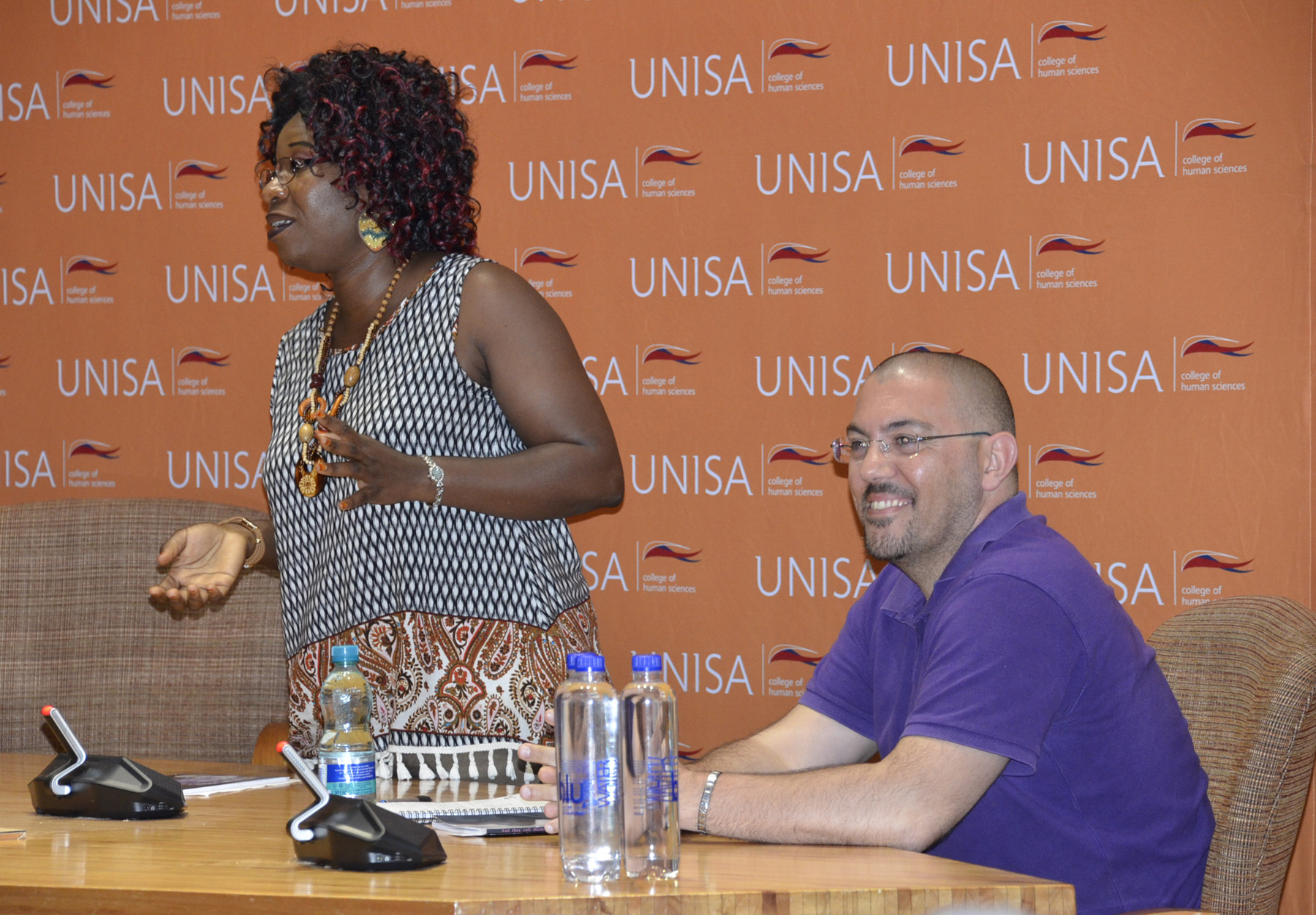
Pictured are Dr Naomi Nkealah (University of Witwatersrand), and Dr Raphael d'Abdon (Department of English Studies).
* By Rivonia Naidu-Hoffmeester (CHS communications and marketing)
Publish date: 2018-03-05 00:00:00.0


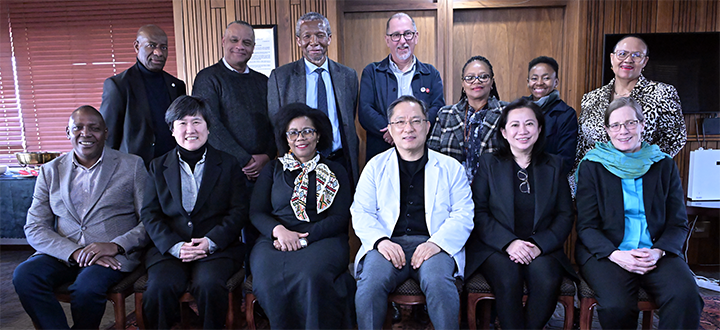 Unisa wins bid to host IAMS General Assembly
Unisa wins bid to host IAMS General Assembly
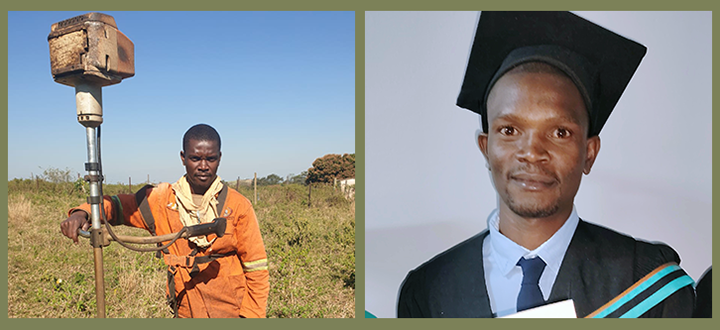 Cutting grass by day, pursuing Unisa studies by night
Cutting grass by day, pursuing Unisa studies by night
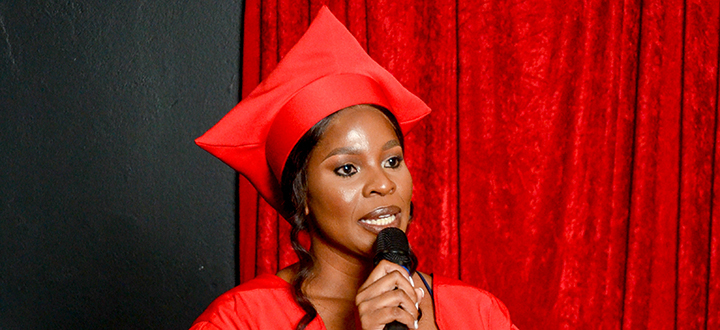 Unisan’s research set to improve accident records management through AI
Unisan’s research set to improve accident records management through AI
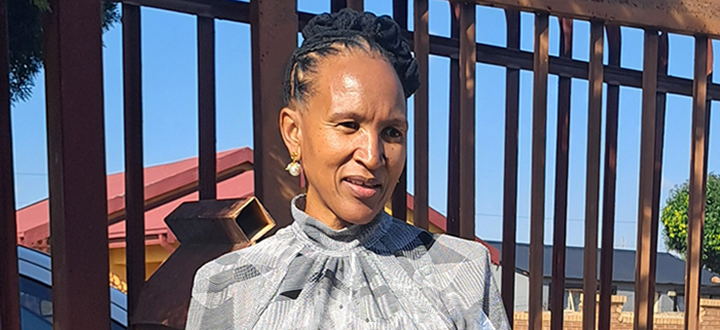 Koma e wetse: When tradition meets the harsh realities of modern livelihoods
Koma e wetse: When tradition meets the harsh realities of modern livelihoods
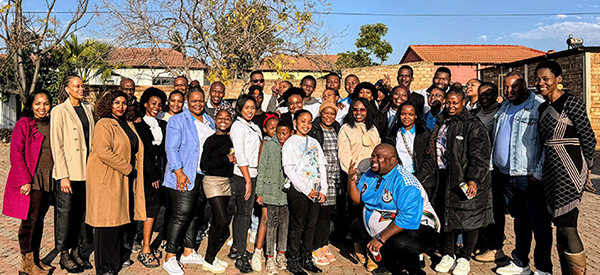 Imbizo inspires youth
Imbizo inspires youth